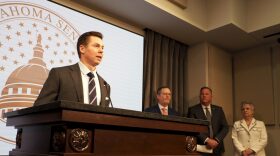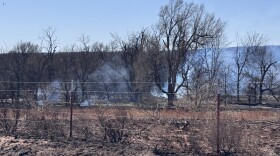At Oklahoma State University’s annual Economic Outlook Conference last week, industry professionals criticized low teacher pay, but forecasted continued job growth in education and several other jobs through 2015.
The Oklahoma Department of Commerce’s Deputy for Workforce Development Diedre Myers questioned how to best prepare Oklahomans for the surge.
“What do our Oklahoma citizens need to do to have successful careers over their lifetime?” she asked.
Myers says part of the preparation includes teaching employers to look for candidates with things like critical and analytic thinking skills instead of choosing applicants with specific majors. She also said schools need to more clearly define what skills are being taught in each subject.
“Does it make a difference, when we’re talking about standards, what the actual subject is? Or does it make a difference what you learn when you take that subject?” she asked.
‘Education Matters’
During Myers’ presentation, she pointed out half of the growing jobs in the state require at least a post-secondary skill certificate, but only one-third of Oklahomans currently have an education corresponding to the job increase.
“We do not have knowledge, skills and abilities that our employers need,” Myers said.
In the next ten years, jobs in Oklahoma’s business and education fields will increase drastically. Both areas require bachelor’s degrees, something that only 23 percent of Oklahoma’s population currently has, according to Myers.
By focusing on the core knowledge, skills and abilities like communication, critical thinking and problem solving, Oklahomans can better equip themselves for the future.
“It really doesn’t matter what the content of what you’re learning with the knowledge, skills and abilities if you get this foundation,” she said.
Myers predicts teens and 20-year olds in Oklahoma today will have anywhere from five to eight careers over their lifespan. Because of that, it doesn’t really matter what someone’s initial degree is in. When K-12 schools set the standards for education, Myers says it is crucial to focus on skills like analytical thinking because those skills stick with the students throughout their careers.
“What matters is the foundation that they’ll have because if that have that foundation, they can learn the content. That is continuous learning."
-----------------------------------------------
KGOU relies on voluntary contributions from readers and listeners to further its mission of public service with arts and culture reporting for Oklahoma and beyond. To contribute to our efforts, make your donation online, or contact our Membershipdepartment.







